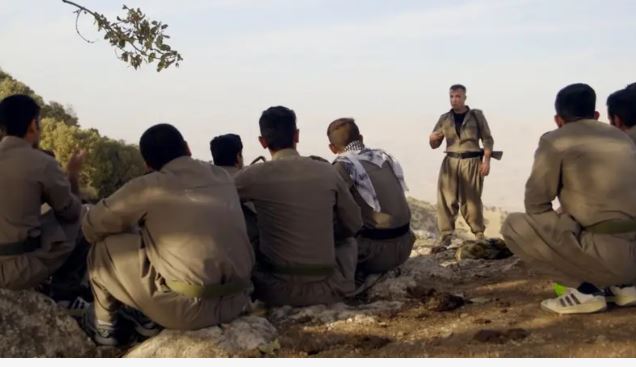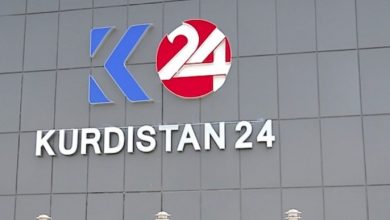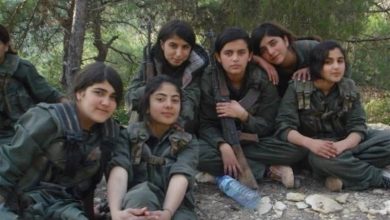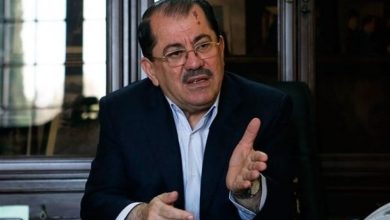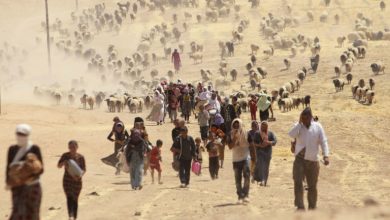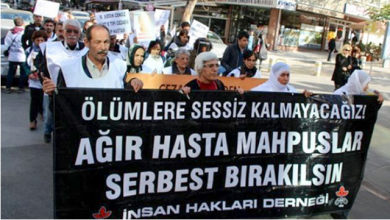Arman Mardani, born in 1993 in Kamyaran, is a young man whose recent life, due to family problems and psychological pressures, led him down a path that resulted in membership with the armed KOMALA group (Mohtadi faction).
Arman’s story is a bitter narrative of the psychological and social damage that can ensnare individuals in the clutches of armed groups and empty promises. This exclusive report is based on a difficult and arduous interview conducted with Arman.
Arman Mardani has a high school diploma and has spent most of his life in freelance jobs such as construction work, shop work, and taxi driving. His life was simple and full of ups and downs until 2023 marked a bitter turning point.
Divorce from his wife and immense financial pressures, especially paying the dowry, plunged Arman into a critical situation. This psychological and physical crisis drew Arman to the virtual world and social media, where he became acquainted with the KOMALA group.
Arman had no political knowledge; he was merely looking for a way to escape his situation. He connected with individuals on social media who introduced themselves as affiliated with KOMALA:
“They spoke of a better future, of safe camps and short-term training, and promised migration. Having lost all hope, I was deceived and crossed the border.”
He was then transferred to a training camp near Sulaymaniyah.
Question: Please introduce yourself and explain what circumstances led you to decide to join the KOMALA group?
Arman Mardani: My name is Arman Mardani. I was born in 1993 and am from Kamyaran. I have a high school diploma. Most of my life I’ve worked odd jobs, from construction laborer to working in a shop and driving a taxi. I had a simple life, but like many, it was full of ups and downs. 2023 was a turning point for me, but not in a good way.
It all started with a divorce. A divorce that wasn’t just about separation; it brought a lot of trouble with it, both emotionally and financially. The amount of dowry I had to pay under those circumstances felt like a mountain. I had no stable income, and no one was truly backing me. My ex-wife’s family constantly pressured and threatened me. I felt like I was being crushed under an inescapable burden.
On top of that, constant anxiety, insomnia, and psychological pressure started to take a toll on my body. I hadn’t received a medical diagnosis yet, but I was experiencing strange symptoms: hand tremors, numbness, dizziness… It was as if I no longer had control over myself. During those days, I spent most of my time on the internet and social media, perhaps to escape reality.
Question: How did you get in touch with the KOMALA group? Were you familiar with them beforehand?
Arman Mardani: No, I had no prior familiarity. I wasn’t into politics, nor was I interested in armed groups. But social media these days is a strange thing. One of the pages, ostensibly active in Kurdish rights, posted about oppression, discrimination, and a path to liberation. Gradually, I got into conversations, and then I connected with a few individuals who introduced themselves as affiliated with KOMALA (Mohtadi faction).
They talked about a better future. They said their camps were safe places for a new beginning. They told me if I came, they would help me; first, I’d undergo a short training course, and then, depending on my abilities, I could either stay in the organization or have a path to migration opened for me.
When someone is grappling with psychological crises, when they’ve lost hope, when they feel like no one cares about them, it’s very easy to fall for these promises. I fell for them too. I arranged to meet them, crossed the border, and was transferred to one of their camps near Sulaymaniyah.
Question: What was your experience like in the KOMALA camp? Did it meet your expectations?
Arman Mardani: Not at all. The first thing I realized was that the mental image they had created for me had nothing to do with reality.
The camp was full of people like me; not heroes, not fighters, just runaways from life. Individuals from different cities and provinces, each with a unique story. But the camp environment was rigid and restrictive. The training was mostly about political and ideological issues, not things that would benefit me. I was looking for a way out, not discussions about revolution and the independence of Kurdistan.
On the other hand, my physical problems had worsened. Dizziness, extreme fatigue, trembling in my legs. When I went to the doctor, after examination and tests, they told me I had MS. I was shocked. I couldn’t believe it. It was then that I realized even my body couldn’t keep up with me anymore.
After that, my role in the camp virtually ceased. They didn’t ask me to do anything, nor did they officially expel me. I was just left to my own devices. I was alone. Without purpose, without treatment, without any plan. Some nights, I felt like even death itself was tired of me.
Question: What led you to decide to leave the group and return to Iran?
Arman Mardani: After almost a year, there had been no change in my situation. No proper treatment, no promise of migration, not even simple support. Life in the camp for someone like me, who had neither the physical ability nor political conviction, was just a waste of time and life.
Meanwhile, my family, who had finally realized where I was and what my problem was, began to follow up. My father, despite being hurt and upset, finally paid the dowry. He called and said, “Come back before it’s too late.” And that’s when I realized this time, they were my salvation, not a group that couldn’t even get my name right.
With great difficulty and fear, I left that environment and, after coordination, returned to Iran in late 2024.
Question: After your return, what kind of treatment did you face? Did you encounter any problems?
Arman Mardani: Contrary to everything they said in the camp – that if you return, you’ll be imprisoned, tortured, executed – none of that was true.
There were interrogation stages, mostly to clarify the details of my trip and my connections. It was completely respectful. I told everything as it was.
Ultimately, I only received a light fine for illegal exit from the country. After that, I was placed under medical supervision, and I am now receiving MS medication. My family is back with me, which is the greatest blessing in the world.

